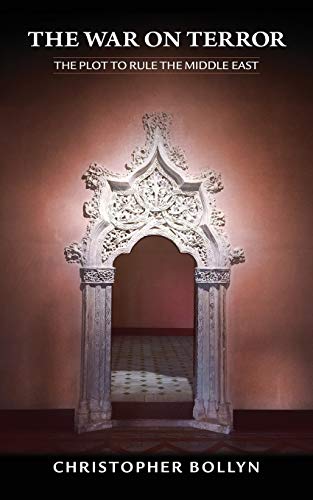St. Maximus the Confessor defended the Latins from accusations of heresy in the 7th century, just as John Bekkos and other Uniates did and still do in the 13th, 15th, and 16th centuries, and up to the current moment. He explained the orthodoxy of the Roman Filioque to the Greeks and said: ‘One should keep in mind that they [the Latins] cannot express their meaning in a language and idiom that are foreign to them as precisely as they can in their own mother-tongue, any more than we can do.’[1]
St. Maximus (who himself was torched for Orthodoxy by the heretics named monothelitists who were in power) knew exactly which Church and which Bishop is infallible in Christian dogmas. I shall provide two example quotes to have a taste of his devotion to the Papacy:
 The War on Terror: The...
Best Price: $10.25
Buy New $14.99
(as of 12:25 UTC - Details)
The War on Terror: The...
Best Price: $10.25
Buy New $14.99
(as of 12:25 UTC - Details)
‘…how much more [it is true] in the case of the clergy and Church of the Romans, which from old until now, as the elder among all the Churches under the sun, presides over all? Having surely received this canonically, as well from councils and apostles, as from the princes of the latter [Peter & Paul], and being numbered in their company, she is subject to no writings or issues of synodical documents, on account of the eminence of her pontificate, even as in all these things all are equally subject to her according to sacerdotal law.’[2]
‘[For] he is only wasting words who thinks he must convince or lure such people as myself, instead of satisfying or entreating the blessed Pope of the most holy Catholic Church of Rome, that is, the Apostolic throne, which is from the incarnate Son Himself and which, in accordance with the holy canons and the definitions of faith, received from all the holy councils universal and supreme dominion, authority, and power of binding and loosing over all the holy churches of God which are in the whole world. For with it the Word who is above the celestial powers binds and looses in heaven also. For if he thinks he must satisfy others, and fails to implore the most blessed Roman Pope, he is acting like a man who, when accused of murder or some other crime, does not hasten to prove his innocence to the judge appointed by law, but only uselessly and without profit does his best to demonstrate his innocence to private individuals, who have no power to acquit him from the accusation.’[3]
These words of Maximus do read as some sort of post-Vatican I dogmatic theology. A pope-lovee he was indeed, but could he be a ‘popesplainer,’ an ultramontanist beyond repair?
 The Forty Years War: T...
Best Price: $3.22
Buy New $18.65
(as of 09:12 UTC - Details)
We can only guess. A Russian Orthodox Archbishop Dimitry of Rostov in the 17th century created a text about St. Maximus in which he provided a supposed dialogue of the saint with the Royal messengers about his submitting to the heretical Patriarch Pyrr:
The Forty Years War: T...
Best Price: $3.22
Buy New $18.65
(as of 09:12 UTC - Details)
We can only guess. A Russian Orthodox Archbishop Dimitry of Rostov in the 17th century created a text about St. Maximus in which he provided a supposed dialogue of the saint with the Royal messengers about his submitting to the heretical Patriarch Pyrr:
‘But what will you do,’ the messengers from the Emperor told St. Maximus, ‘when the Romans unite with the Byzantines? Yesterday, two apocrisiaries came from Rome, and tomorrow, on Sunday, they will commune with the Patriarch of the Most Pure Mysteries.’
The monk replied: ‘If the whole universe begins to commune with the patriarch, I will not commune with him.’ For I know from the writings of the holy Apostle Paul that the Holy Spirit would anathematise even the Angels if they preached the gospel differently, introducing anything new (Gal. 1:8).’[4]
Of course, neither did Rome unite with any heretics, nor did this dialogue ever happen. But there is a truth here for meditation, while not a historic one: if the dogmatically infallible Pope appoints some legates who sin against the Faith and create scandal, or if he even – God forbid – commune with some material heretics himself – one should eschew the two temptations – that of participation in the same sin and that of committing another, i.e. going into schism.
That being just a theory, let us now look at a true story about the Pope colluding with heretics and persecuting faithful men in our history.




